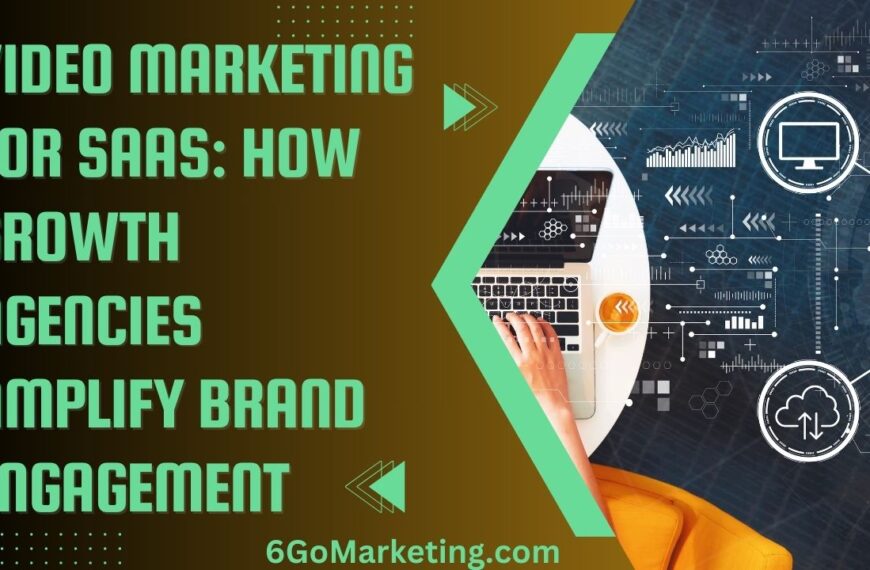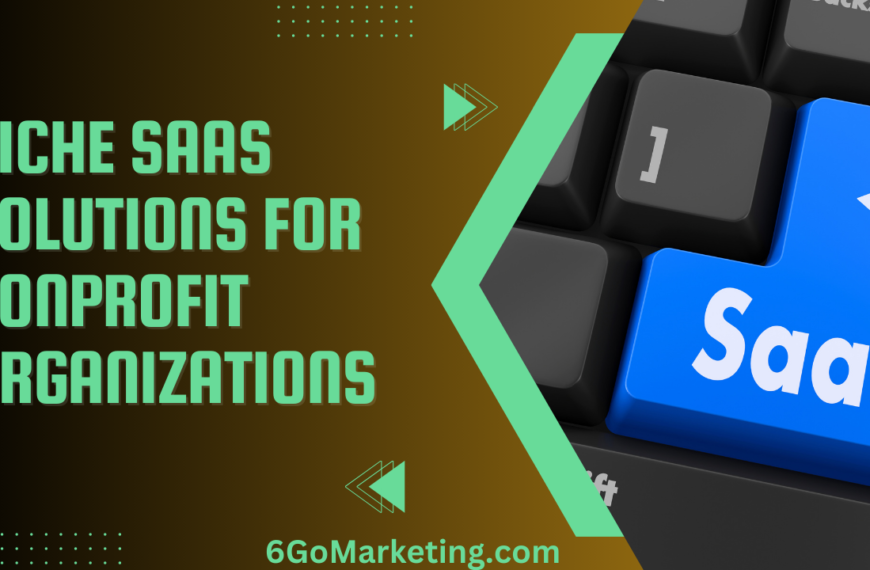Influencer marketing has become a cornerstone of modern marketing strategies, particularly for brands aiming to connect with niche audiences. The rise of social media has given birth to a new wave of influencers—individuals who have built loyal followings around specific interests, lifestyles, or industries.
As influencer marketing continues to grow, managing these campaigns has become increasingly complex. Brands must identify the right influencers, negotiate partnerships, track campaign performance, and measure return on investment (ROI).
This is where niche SaaS (Software as a Service) tools for managing influencer marketing campaigns come into play. These specialized platforms are designed to simplify and streamline every aspect of influencer marketing, from influencer discovery and relationship management to campaign analytics and reporting.
In this blog post, we will explore some of the top niche SaaS tools for managing influencer marketing campaigns, their features, benefits, and how they can help brands maximize the effectiveness of their influencer marketing efforts.
The Importance of Influencer Marketing
Before diving into the tools themselves, it’s essential to understand why influencer marketing is so valuable for brands. Influencer marketing leverages the trust and credibility that influencers have built with their followers to promote products or services. Unlike traditional advertising, which can often feel impersonal or intrusive, influencer marketing allows brands to reach consumers in a more authentic and relatable way.
According to a study by Influencer Marketing Hub, businesses are earning an average of $5.78 for every dollar spent on influencer marketing, making it one of the most cost-effective marketing strategies available. Additionally, 89% of marketers say that ROI from influencer marketing is comparable to or better than other marketing channels.
Table 1: Key Benefits of Influencer Marketing
| Benefit | Description |
|---|---|
| Authenticity | Influencers promote products in a relatable and trustworthy way |
| Audience Targeting | Reach niche audiences with specific interests |
| Cost-Effectiveness | High ROI compared to traditional advertising |
| Social Proof | Influencers provide credibility and validation |
| Engagement | Higher levels of engagement and interaction |
The Challenges of Managing Influencer Marketing Campaigns
While influencer marketing offers numerous benefits, it also comes with its own set of challenges. Managing an influencer marketing campaign involves multiple moving parts, including influencer selection, contract negotiation, content creation, campaign execution, and performance tracking. Using a contract writing tool can make this process smoother by automating contract creation and helping to ensure that everything is consistent and error-free. For brands running campaigns with multiple influencers across different platforms, the complexity increases exponentially.
Common challenges include:
- Finding the Right Influencers: Identifying influencers who align with your brand’s values and target audience can be time-consuming and challenging.
- Managing Relationships: Maintaining strong relationships with influencers requires ongoing communication, negotiation, and collaboration.
- Tracking Campaign Performance: Measuring the effectiveness of influencer campaigns and calculating ROI can be difficult without the right tools.
- Ensuring Compliance: Ensuring that influencers adhere to FTC guidelines and disclose sponsored content is crucial to maintaining transparency and avoiding legal issues.
- Scaling Campaigns: As campaigns grow, managing multiple influencers and campaigns simultaneously becomes more complex.
These challenges highlight the need for specialized SaaS tools that can help brands manage their influencer marketing campaigns more efficiently and effectively.
Top Niche SaaS Tools for Managing Influencer Marketing Campaigns
To address the challenges mentioned above, a variety of niche SaaS tools have emerged, each offering unique features tailored to different aspects of influencer marketing. Below, we explore some of the top tools that brands can use to manage their influencer marketing campaigns.
1. AspireIQ
Overview: AspireIQ is a comprehensive influencer marketing platform that helps brands identify, manage, and measure influencer partnerships at scale. The platform is designed for brands looking to build long-term relationships with influencers and create authentic content that resonates with their audience.
Key Features:
- Influencer Discovery: AspireIQ’s advanced search and filtering tools help brands find influencers based on criteria such as audience demographics, engagement rates, and content style.
- Campaign Management: Manage every aspect of your influencer campaigns, from initial outreach and contract negotiation to content approval and payment processing.
- Content Library: Store and organize all campaign content in a centralized library, making it easy to track performance and repurpose content across channels.
- Analytics and Reporting: Track key performance metrics such as engagement, reach, and ROI, and generate detailed reports to measure campaign success.
Pros:
- User-friendly interface
- Strong focus on relationship-building
- Robust analytics and reporting features
- Scalable for campaigns of all sizes
Cons:
- Higher pricing tier may be prohibitive for smaller brands
- Learning curve for new users
Pricing:
- AspireIQ offers customized pricing based on the needs of the brand, making it suitable for mid-sized to large enterprises.
Best For:
- Brands looking to build long-term relationships with influencers and scale their influencer marketing efforts.
2. Upfluence
Overview: Upfluence is an influencer marketing platform that combines influencer discovery, relationship management, and campaign analytics into a single solution. The platform is known for its data-driven approach, offering detailed insights into influencer performance and audience demographics.
Key Features:
- Influencer Search: Access a database of over 3 million influencers, with filters for audience demographics, engagement rates, and content categories.
- Influencer Outreach: Automate influencer outreach with customizable email templates and track responses directly within the platform.
- Campaign Management: Manage all aspects of your campaigns, including content approval, payment tracking, and performance monitoring.
- Affiliate Marketing Integration: Integrate with affiliate marketing platforms to track sales generated by influencers and calculate ROI.
Pros:
- Extensive influencer database
- Powerful filtering and search capabilities
- Integration with affiliate marketing platforms
- Comprehensive analytics and reporting
Cons:
- May be more complex than necessary for small campaigns
- Limited customer support for lower-tier plans
Pricing:
- Upfluence offers several pricing tiers, starting with a basic plan for smaller brands and scaling up for enterprises.
Best For:
- Brands looking for a data-driven approach to influencer marketing, with a focus on performance tracking and ROI.
3. Traackr
Overview: Traackr is a leading influencer marketing platform that focuses on relationship management and campaign analytics. It’s designed for brands that prioritize building authentic, long-term relationships with influencers. Traackr’s unique approach to influencer marketing emphasizes transparency, compliance, and data-driven decision-making.
Key Features:
- Influencer Discovery: Find influencers who align with your brand values and audience using Traackr’s comprehensive search and filtering tools.
- Relationship Management: Keep track of all interactions with influencers, from initial outreach to ongoing collaboration, using Traackr’s CRM-like features.
- Campaign Reporting: Measure the impact of your influencer campaigns with detailed analytics on reach, engagement, and ROI.
- Compliance Monitoring: Ensure that influencers comply with FTC guidelines and disclosure requirements with automated monitoring and alerts.
Pros:
- Strong focus on compliance and transparency
- Robust relationship management features
- Detailed reporting and analytics
- Ideal for brands seeking long-term influencer partnerships
Cons:
- Higher cost compared to other platforms
- Not as focused on content creation tools
Pricing:
- Traackr offers enterprise-level pricing, with customized plans based on the needs of the brand.
Best For:
- Large brands that prioritize compliance, transparency, and long-term influencer relationships.
4. GRIN
Overview: GRIN is an influencer marketing platform specifically designed for e-commerce brands. The platform offers a comprehensive suite of tools for managing influencer campaigns, from discovery and outreach to tracking and reporting. GRIN integrates seamlessly with popular e-commerce platforms, making it easy to track the impact of influencer campaigns on sales.
Key Features:
- Influencer Recruitment: Find and recruit influencers directly from social media platforms using GRIN’s browser extension.
- E-Commerce Integration: Integrate with platforms like Shopify, WooCommerce, and BigCommerce to track sales and conversions generated by influencers.
- Campaign Workflow: Automate key aspects of your campaigns, including contract management, content approval, and payment processing.
- Product Seeding: Easily send products to influencers for reviews or giveaways, with built-in tracking and inventory management.
Pros:
- Tailored for e-commerce brands
- Seamless integration with e-commerce platforms
- Strong focus on ROI and sales tracking
- Easy product seeding and inventory management
Cons:
- Limited to e-commerce use cases
- Higher pricing may not be suitable for smaller brands
Pricing:
- GRIN offers custom pricing based on the needs and size of the brand, making it ideal for medium to large e-commerce businesses.
Best For:
- E-commerce brands looking to drive sales and track ROI through influencer marketing.
5. Klear
Overview: Klear is an influencer marketing platform that offers a complete solution for influencer discovery, campaign management, and performance analysis. The platform is known for its user-friendly interface and advanced analytics, making it a popular choice for brands that want to optimize their influencer marketing efforts with data-driven insights.
Key Features:
- Influencer Identification: Access a database of over 900 million influencer profiles, with detailed insights into audience demographics, engagement rates, and content performance.
- Campaign Management: Manage all aspects of your influencer campaigns, from outreach and content creation to tracking and reporting.
- Performance Analytics: Monitor the effectiveness of your campaigns with real-time data on reach, engagement, and conversions.
- Influencer CRM: Keep track of influencer interactions, agreements, and collaborations with Klear’s built-in CRM features.
Pros:
- Extensive influencer database
- Intuitive and easy-to-use interface
- Advanced analytics and reporting
- Comprehensive campaign management tools
Cons:
- Limited to influencer marketing; lacks broader marketing automation features
- May require additional training for teams new to influencer marketing platforms.
Pricing:
- Klear offers customized pricing based on the brand’s needs and the scale of its influencer marketing efforts. They provide a demo upon request to determine the best plan for your business.
Best For:
- Brands seeking a user-friendly platform with powerful analytics and comprehensive influencer marketing tools.
6. NeoReach
Overview: NeoReach is a data-driven influencer marketing platform that focuses on helping brands manage large-scale influencer campaigns. With a strong emphasis on analytics and reporting, NeoReach is ideal for businesses that want to take a scientific approach to influencer marketing by leveraging data to inform their decisions.
Key Features:
- Influencer Search and Discovery: NeoReach offers advanced search capabilities that allow brands to discover influencers based on audience demographics, engagement, and niche relevance.
- Campaign Management: Plan, execute, and monitor influencer campaigns from start to finish, with tools for content approval, payment processing, and performance tracking.
- Detailed Analytics: NeoReach provides robust analytics on campaign performance, including reach, engagement, ROI, and even fraud detection to ensure the authenticity of influencer activities.
- Custom Reports: Generate custom reports using report templates to share with stakeholders, highlighting key metrics and campaign outcomes.
Pros:
- Data-driven approach to influencer marketing
- Advanced analytics and fraud detection
- Scalable for large campaigns
- Customizable reports for stakeholders
Cons:
- Primarily suited for larger brands with substantial budgets
- Steeper learning curve due to its extensive features
Pricing:
- NeoReach offers enterprise-level pricing tailored to the specific needs and goals of each brand. Pricing information is available upon request.
Best For:
- Large brands and agencies managing extensive influencer marketing campaigns with a focus on data and ROI.
7. HYPR
Overview: HYPR is an influencer marketing platform that stands out for its focus on data and influencer audience insights. With a massive database of influencers across various platforms, HYPR enables brands to identify the most relevant influencers based on detailed audience demographics and psychographics.
Key Features:
- Audience Analytics: Gain insights into the demographics, interests, and behaviors of an influencer’s audience, ensuring better alignment with your target market.
- Influencer Discovery: Search and filter through over 12 million influencer profiles to find the best match for your brand.
- Campaign Workflow Automation: Streamline the campaign management process with tools for content approval, payments, and reporting.
- Compliance and Fraud Detection: Ensure that influencer campaigns comply with regulations and detect potential fraud with automated tools.
Pros:
- Comprehensive audience insights
- Large influencer database across multiple platforms
- Automated workflow and compliance tools
- Focus on transparency and data accuracy
Cons:
- Geared towards larger brands and agencies
- May be overkill for small-scale campaigns
Pricing:
- HYPR offers customized pricing plans based on the size and needs of the brand. A demo is available to explore the platform’s features.
Best For:
- Brands and agencies that require in-depth audience analytics and data-driven influencer selection.
8. Heepsy
Overview: Heepsy is a cost-effective influencer marketing platform designed for small to medium-sized businesses. The platform provides essential tools for discovering influencers, analyzing their profiles, and managing campaigns. Heepsy’s affordability and ease of use make it an excellent choice for businesses with limited resources.
Key Features:
- Influencer Search: Discover influencers based on location, follower count, engagement rate, and more.
- Profile Analysis: Analyze influencer profiles to assess their audience demographics, growth trends, and engagement metrics.
- Campaign Management: Organize and manage your influencer collaborations in one place, with tools for content tracking and communication.
- Contact Information: Access influencers’ contact details for direct outreach, making it easy to initiate partnerships.
Pros:
- Affordable pricing for small businesses
- User-friendly interface
- Basic yet effective campaign management tools
- Access to influencer contact information
Cons:
- Limited features compared to more advanced platforms
- No automated reporting or payment processing
Pricing:
- Heepsy offers tiered pricing starting at $49 per month, making it accessible to smaller businesses with tight budgets.
Best For:
- Small businesses and startups looking for an affordable, straightforward platform to manage influencer marketing campaigns.
Comparison Table of Niche SaaS Tools for Influencer Marketing
Table 2: Comparison of Niche SaaS Tools for Managing Influencer Marketing Campaigns
| SaaS Tool | Best For | Key Features | Pricing (Starting) | Unique Strengths |
|---|---|---|---|---|
| AspireIQ | Building long-term influencer relationships | Influencer discovery, relationship management, content library, analytics | Custom pricing | Focus on relationship building and scalability |
| Upfluence | Data-driven influencer marketing | Influencer search, automated outreach, campaign management, affiliate integration | Custom pricing | Extensive database and performance tracking |
| Traackr | Compliance and transparency | Influencer discovery, relationship management, compliance monitoring, analytics | Custom pricing | Compliance and long-term partnerships |
| GRIN | E-commerce brands | Influencer recruitment, e-commerce integration, campaign workflow, product seeding | Custom pricing | Seamless e-commerce integration |
| Klear | User-friendly analytics | Influencer identification, campaign management, real-time analytics, CRM | Custom pricing | Intuitive interface with advanced analytics |
| NeoReach | Large-scale campaigns | Influencer search, campaign management, detailed analytics, fraud detection | Custom pricing | Data-driven focus with fraud detection |
| HYPR | Audience insights | Audience analytics, influencer discovery, workflow automation, compliance | Custom pricing | Comprehensive audience insights |
| Heepsy | Small to medium-sized businesses | Influencer search, profile analysis, campaign management, contact details | $49/month | Affordable and easy to use |
Best Practices for Managing Influencer Marketing Campaigns with SaaS Tools
To maximize the effectiveness of influencer marketing campaigns using SaaS tools, brands should adhere to the following best practices:
- Define Clear Objectives:
- Start by setting clear and measurable goals for your influencer marketing campaign. Whether it’s brand awareness, lead generation, or sales growth, having defined objectives will guide your strategy and help you measure success.
- Select the Right Influencers:
- Use the influencer search and discovery tools provided by your SaaS platform to find influencers who align with your brand’s values, audience, and goals. Prioritize influencers with genuine engagement and a loyal following over those with just high follower counts.
- Maintain Transparent Communication:
- Establish clear communication channels with influencers from the outset. Discuss expectations, content guidelines, timelines, and compensation upfront to ensure a smooth collaboration.
- Leverage Data for Decision-Making:
- Utilize the analytics and reporting features of your SaaS tool to monitor campaign performance in real-time. Analyze metrics such as engagement, reach, conversions, and ROI to determine what’s working and where adjustments are needed.
- Ensure Compliance and Transparency:
- Work with your influencers to ensure they disclose sponsored content in accordance with FTC guidelines. Use compliance monitoring features to track disclosures and maintain transparency with your audience.
- Optimize and Scale:
- As your campaigns progress, use data insights to optimize your strategy. Identify high-performing influencers, content formats, and channels, and scale your efforts accordingly.
- Measure and Report ROI:
- Use your SaaS platform’s reporting tools to measure the ROI of your influencer marketing campaigns. Share these insights with stakeholders to demonstrate the value of your efforts and inform future campaigns.
The Future of Influencer Marketing SaaS Tools
The landscape of influencer marketing continues to evolve, driven by technological advancements and changing consumer behaviors. As we look to the future, several trends are likely to shape the next generation of influencer marketing SaaS tools:
- AI and Machine Learning:
- AI and machine learning will play a greater role in influencer marketing, with tools becoming more adept at predicting campaign outcomes, optimizing influencer selection, and automating routine tasks.
- Micro and Nano Influencers:
- The shift towards working with micro and nano influencers will continue, as brands recognize the value of smaller influencers with highly engaged, niche audiences. SaaS tools will likely enhance their features to cater to this growing trend.
- Integration with Emerging Platforms:
- As new social media platforms gain popularity, influencer marketing tools will need to integrate with these platforms to help brands reach untapped audiences. Expect to see tools that support platforms like TikTok, Clubhouse, and other emerging channels.
- Enhanced Measurement and Attribution:
- Measuring the true impact of influencer marketing remains a challenge. Future SaaS tools will offer more sophisticated attribution models that provide a clearer picture of how influencer campaigns contribute to overall business goals.
- Greater Focus on Compliance:
- As regulations around influencer marketing continue to tighten, SaaS tools will invest in more robust compliance features to help brands and influencers navigate legal requirements.
Table 3: Future Trends in Influencer Marketing SaaS Tools
| Trend | Description | Impact on Influencer Marketing |
|---|---|---|
| AI and Machine Learning | Predicting outcomes, optimizing selection, automating tasks | Increased efficiency and smarter decision-making |
| Micro and Nano Influencers | Focus on smaller influencers with niche audiences | More authentic, targeted campaigns |
| Integration with Emerging Platforms | Support for new and growing social media channels | Expanded reach and new opportunities |
| Enhanced Measurement and Attribution | Improved ROI tracking and attribution models | Clearer insights into campaign effectiveness |
| Greater Focus on Compliance | Stronger compliance tools to navigate legal requirements | Reduced risk of legal issues, improved transparency |
Conclusion
Managing influencer marketing campaigns can be a complex and time-consuming process, especially as brands scale their efforts and engage with multiple influencers across various platforms. However, with the right SaaS tools, brands can streamline their influencer marketing strategies, optimize campaign performance, and achieve a higher return on investment.
Niche SaaS tools such as AspireIQ, Upfluence, Traackr, GRIN, Klear, NeoReach, HYPR, and Heepsy offer specialized features that address the unique challenges of influencer marketing. Whether you’re a small business looking for an affordable and user-friendly solution, or a large enterprise needing robust data analytics and compliance monitoring, there’s a platform that fits your needs.
By following best practices, such as defining clear objectives, selecting the right influencers, maintaining transparent communication, and leveraging data for decision-making, brands can maximize the impact of their influencer marketing campaigns. Additionally, staying ahead of future trends in AI, micro-influencer engagement, and emerging social media platforms will ensure that your brand remains competitive in the ever-evolving landscape of influencer marketing.
As the industry continues to grow, influencer marketing SaaS tools will play an increasingly vital role in helping brands navigate the complexities of influencer partnerships, ensuring that they can deliver authentic, targeted, and high-impact campaigns that resonate with their audiences.










